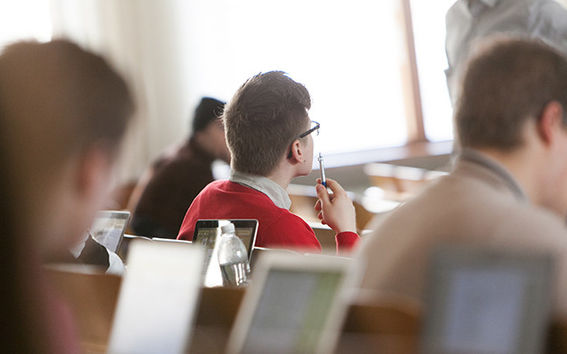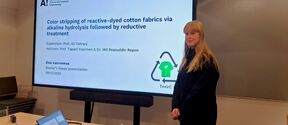Doctoral dissertation: One of the primary purposes of higher education is to reproduce capitalism

The adverse effects of industrial mass production and consumption can today be seen all over the world. The most serious of these effects are considered to be climate change and sixth mass extinction. Thus far the proposals to mitigate the human-caused ecological crisis have been inadequate, both qualitatively and in terms of scope.
Instead of addressing the deteriorated state of ecosystems, social discourse is primarily focused on the analysis of economic trends and new opportunities for economic growth. This, in itself, is not surprising, as without economic growth, the capitalist market economy would be in crisis.
According to the doctoral dissertation of Toni Ruuska – which will be publicly examined at Aalto University on 16 June – there exists an absolute contradiction between capitalism and ecological sustainability, which cannot even be transcended with modern technology. In his dissertation, Ruuska examines the foundations capitalism. The basis of his argument is the capitalist market economy as a continuously expanding economic structure in juxtaposition to the finite state of the planet Earth, with its finite natural resources.
In addition to ecological unsustainability, in the dissertation it is studied how capitalism is reproduced as a socio-economic structure. In particular, the objectives of state and higher education are contrasted and mirrored with the needs of capital. The dissertation presents an historical progression, where, over the past few decades, higher education as an institution has become more tightly integrated with the structures of transnational capital accumulation. One aspect of this development is that higher education has become an increasingly vital component of the so-called knowledge capitalism, which has had a significant impact on the content and aims of contemporary higher education.
Education is generally considered as a mean to alleviate modern sustainability problems. Mr. Ruuska, however, claims the opposite. ‘The kinds of societal structures to which higher education is linked, naturally influence both the objectives and outcomes of higher education. Therefore, the educational system operates on an ecologically unsustainable basis, as one of its primary purposes is to reproduce capitalism’, explains Ruuska.
According to the dissertation, the objectives of higher education should not be defined according to the needs of capital, as has been the case in Finland over the past few decades. ‘In order to ensure that higher education is not just an instrument to be used in global economic competition, it is crucial that educational objectives are set based on the limits of our planet and in accordance with the principles of social justice. Unfortunately, the current situation is something else entirely,’ says Ruuska.
More information:
Toni Ruuska
+358 (0)40 586 3377
toni.ruuska@aalto.fi
Read more news

Learning Centre opening hours during Christmas and year-end holidays
Thank you for the past year and have a wonderful holiday season!
Smart textiles are reshaping our understanding of materials – and interspecies communication
The PAST-A-BOT research project, funded by the European Research Council (ERC), is developing soft, intelligent textiles that could one day function as rescue robots, sound-sensing agricultural fabrics, or assistive clothing. At the same time, the project aims to rethink the way we approach materials research.
Master’s student showcases efficient color stripping of cotton fabrics
On December 9, master’s thesis student Elsa Vuorenmaa from the Textile Chemistry Group presented the results of her research on color stripping of reactive-dyed cotton fabrics.






